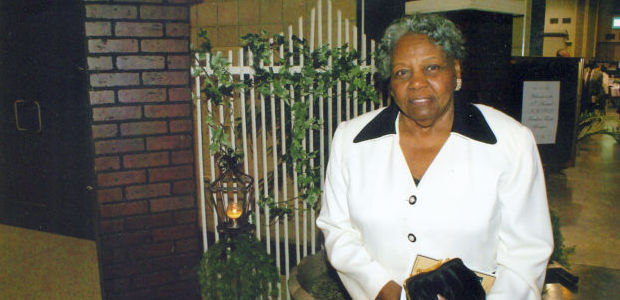Should Lafourche consolidate its tax districts?
July 2, 2013Happy 237th birthday, America
July 2, 2013Before the people worked up the courage to cross Alabama’s Edmund Pettus Bridge to stand up for voting rights, met with hostile police and their snarling dogs, disabling fire hose streams and flailing batons, before the law guaranteeing franchise that their blood and tears bought, long before the “white” and “colored” signs were removed from Louisiana’s water fountains, there was Hazel Boykin.
As a mother of two small children, while Dwight D. Eisenhower was still president, she ferried black workers from the fields to the Terrebonne Parish courthouse, calming their fears while driving a freedom-mobile in the form of a red Ford sedan.
“I didn’t have any trouble myself,” she said. “I registered to vote and nobody gave me a problem. So I started picking them up and taking them to register. I went on Southdown Plantation, I went on Hollywood Plantation. Some of them were afraid of the overseers on the plantation but after I talked with them they decided to go. Some of them said ‘please don’t let them handcuff me and put me in jail,’ some were swearing even and carrying on. It’s a wonder they never did run me away, the overseers. But they didn’t.”
In Terrebonne Parish, as in Lafourche and St. Mary, there is no known record of burning crosses, farm buildings or homes, such as the legacy from which Mississippi still struggles following a bloody and murderous Freedom Summer.
But according to Boykin and others who remember a different Terrebonne Parish, it was the strict social structure, an unspoken social contract that “kept in their place” black people who were disenfranchised since after Reconstruction.
Now 90-years-old, Boykin, mother of Terrebonne Parish NAACP President Jerome Boykin, recalls the carloads of workers she brought to the voting registration desk.
In her lifetime, she has seen the U.S. Supreme Court affirm a law that rankled those who eschewed franchise for blacks, and now has lived to see a key provision of that law fall because that same court says things are much better.
In Shelby County Alabama v. Holder, the decision says the portion of the Voting Rights Act requiring states and communities with a history of discrimination in voting matters must get permission from the U.S. Department of Justice before creating new district boundaries, polling locations and other changes.
In the decision, Chief Justice John Roberts recounts the history of post-Civil War voting issues based on race in the U.S., beginning with ratification of the 15th Amendment to the Constitution in 1870.
It provides that “[t]he right of citizens of the United States to vote shall not be denied or abridged by the United States or by any State on account of race, color, or previous condition of servitude,” and it gives Congress the “power to enforce this article by appropriate legislation.”
“In the 1890s, Alabama, Georgia, Louisiana, Mississippi, North Carolina, South Carolina, and Virginia began to enact literacy tests for voter registration and to employ other methods designed to prevent African-Americans from voting,” Roberts wrote. “Congress passed statutes outlawing some of these practices and facilitating litigation against them, but litigation remained slow and expensive, and the States came up with new ways to discriminate as soon as existing ones were struck down … Inspired to action by the civil rights movement, Congress responded in 1965 with the Voting Rights Act.”
Roberts points to numbers that show, percentage-wise, greater percentages of black voters in some places where franchise was once denied.
In Terrebonne Parish some elder black residents have reported being asked questions after World War II that they believe were designed to keep them from registering to vote. There is, however, no known proof of the practice.
But on the plantations, where scrip-trading company stores and sometimes intimidating overseers kept people in bondage not much different from their enslaved ancestors, the fear of disapproval from superiors was enough to keep people from seizing their rights.
Boykin knows she has lived long enough to see the kind of change Roberts writes of, even as civil rights advocates and others complain of the high court’s will.
“Although the Voting Rights Act wrought dramatic changes in the realization of minority voting rights, the Act, to date, surely has not eliminated all vestiges of discrimination against the exercise of the franchise by minority citizens,” Justice Ruth Bader-Ginsburg wrote in her dissent. “Jurisdictions covered by the pre-clearance requirement continued to submit, in large numbers, proposed changes to voting laws that the Attorney General declined to approve, auguring that barriers to minority voting would quickly resurface were the pre-clearance remedy eliminated.”
With or without Section 4 of the Voting Rights Act, Hazel Boykin knows that in Terrebonne Parish, change has indeed come.
I always did think one day things would be better,” she said.
Houma resident Hazel Boykin (at left), mother of Terrebonne Parish’s National Association for the Advancement of Colored People president Jerome Boykin Sr., remembers transporting carloads of black workers to the viting registration desk years ago.









